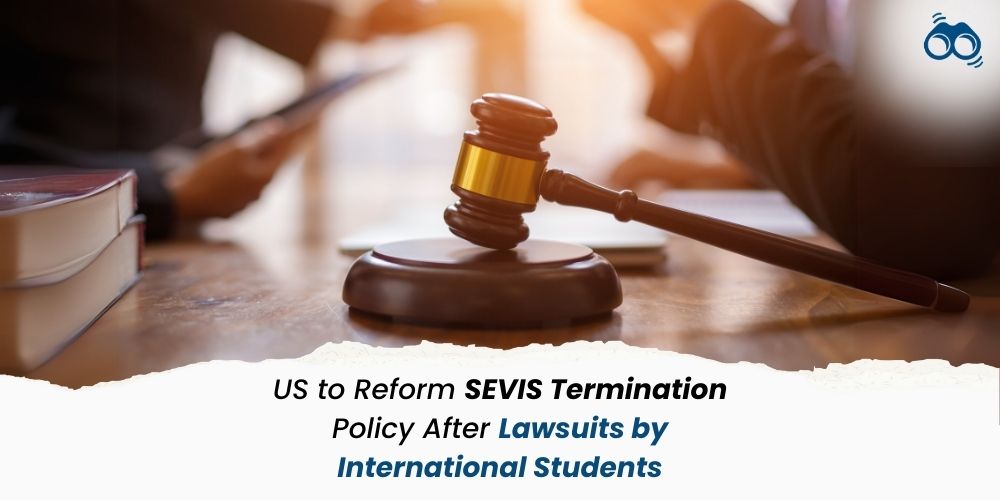Behind the SEVIS Shutdown: How Faulty Data Triggered a Nationwide Visa Crisis
Visa Cancellations Under Review as DHS Moves Toward Policy Reform
In response to widespread controversy surrounding the erroneous termination of SEVIS records, the U.S. government has announced the development of a new regulatory framework to oversee visa cancellations, particularly after numerous international students alleged that their F-1 and M-1 visas were revoked without due process.
These students, many of whom were not charged or convicted of any crimes, reported abrupt cancellations based on law enforcement checks and database entries, notably from the FBI-managed NCIC, causing severe disruptions to their education and personal lives. A federal judge in Georgia recently issued Temporary Restraining Orders (TROs) mandating the reinstatement of SEVIS records for 133 students, including several from India, whose visa statuses had allegedly been wrongfully terminated.
Subsequently, the Department of Homeland Security (DHS), represented in a California federal court, confirmed that it was reversing the terminations and drafting a policy to guide future SEVIS record closures. Until this policy is finalised, affected students’ records will either remain active or be reactivated, and DHS has committed to refraining from making further modifications based solely on NCIC data.
Attorney Brian Green confirmed that the temporary protections extend beyond the plaintiffs to similarly affected students, while an Associated Press investigation revealed that over 1,220 students from 187 institutions had their visas revoked in late March. This wave of cancellations, reportedly initiated after U.S. Secretary of State Marco Rubio's declaration targeting individuals perceived as threats to national interests, including protesters and those with legal encounters, appeared to lack individualised assessment, according to critics.
Immigration attorney Sheela Murthy condemned the mass terminations, suggesting that DHS may have employed artificial intelligence to execute broad visa revocations without verifying case-specific details. She emphasised that many students had no criminal records or had previously cleared legal proceedings, describing the terminations as unjust and a potential violation of due process.
Murthy also warned of the serious financial and academic setbacks faced by families, estimating losses in the hundreds of thousands of dollars. Legal experts highlighted that the current reinstatements are provisional and subject to further judicial review. Anna Stepanova from the Murthy Law Firm noted that the ongoing TROs provide temporary relief, but without a permanent resolution, students could struggle with future immigration procedures, including status changes or green card applications.
Meanwhile, Mamta Shekhawat of Gradding.com welcomed the reinstatements, emphasising the critical relief they offer to students who would otherwise face deportation and the collapse of their educational and professional prospects. She underscored the importance of students regularly monitoring their SEVIS profiles and maintaining communication with Designated School Officials (DSOs) to ensure compliance with all academic and immigration requirements. Ultimately, the government’s move to pause terminations and formulate a fairer policy offers a much-needed reprieve to affected international students, while reinforcing the need for accuracy, accountability, and due process in immigration enforcement.
Editor’s Note:
The recent issue involving the cancellation of SEVIS records for hundreds of international students is deeply concerning. Many of these students had no criminal records or had their cases dismissed, yet still faced serious consequences due to sudden and unexplained visa terminations. It appears the process lacked proper individual review and may have relied too heavily on database checks or automated systems. For students who have worked hard to study in the U.S., this situation has caused unnecessary stress, confusion, and disruption to their education. While the government's decision to reverse these terminations and develop a clearer policy is a positive step, it highlights the need for greater accountability in immigration enforcement.
Skoobuzz underlines that mistakes like these not only affect students' futures but also damage trust in the system. A fair and careful approach is essential to ensure that international students are treated with respect and that their rights are protected.














0 Comments (Please Login To Continue)